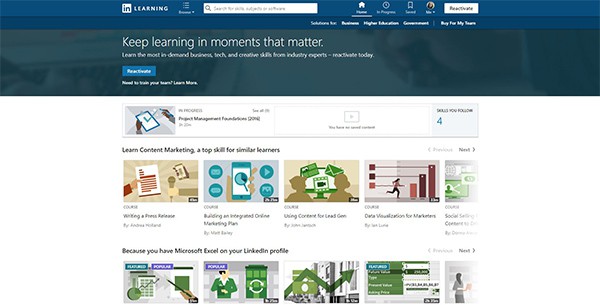
Key points you should know to be a successful freelancer – part two
Posted on 29th November 2019 by Katherine Ducie
In part one of key points you should know to be a successful freelancer, we provided advice on building your freelance services, achieving financial security, running checks on clients and more.
Keep reading part two for more guidance on freelancing factors to be aware of and useful measures you can take to safe proof the future of a successful freelance career.
Read the small print
If a client is sending you a contract as opposed to you sending them one, make sure you take the time to read it properly. If there’s something you’re not sure of or you’re not happy with, don’t be afraid to question it and seek clarification. Being assertive will gain respect and demonstrate your attention to detail.
To source work, you may use a freelancing platform like Twine or People Per Hour. These platforms often give you the protection of a deposit and resources like dispute services, should something go wrong. Make sure you have read the details regarding the percentage cut the platform will take from your profit as well as any transfer fees they charge. It’s also helpful to read up on their copyright policy to make sure you don’t encounter any copyright issues further down the line.

Working around the clock
When you’re a freelancer and you have an abundance of tasks to get through, there is no manager there to delegate work to co-workers. If you’re swamped with work, this can leave you in a very difficult and stressful situation. The only logical remedy is to lose the typical 9-5 routine and work all hours to get your jobs completed in time.
Newer freelancers who are in the process of building their reputation and charging lower rates to secure work can also fall victim to this schedule.
Over time this approach isn’t sustainable and can damage your health. Always bear in mind that we all work to live. We don’t live to work and there are few things worth more than your health. Where possible try to create a routine that includes breaks throughout the day and a proper lunch break.
Take a break
Having breaks is scientifically proven to increase productivity. As well as benefitting your brain function, breaks are needed for your eye health and overall physical health. Try and get away from your desk and step out into nature. Even as much as looking at pictures of nature is thought by scientists to reduce stress. Each hour, take a little walk and give your eyes a moment away from the screen.
For creatives, it’s especially interesting to know that when you switch off, the problem-solving creative part of your brain kicks in.If you feel like you’re drowning in work, why not outsource to other freelancers? This will take away some of the burden you’re carrying and is likely to reduce stress. Remember that your health is more important than meeting every client demand that falls your way. Sometimes you must learn to say no.

All work and no play results in burnout
It’s important to remember that having fun isn’t a nice thing to have; it’s a necessity. If you work around the clock, you’re missing out on time spent with family and friends and doing all the things that you love. Winding down is essential. It gives you time to recharge and repair ready for the next day.
Focus on having a few productive hours instead of leaving yourself open to working all hours. It’s inevitable that once you become tired, your productivity will significantly decrease anyway.
For tips on how to be less stressed at work, visit: workinmind.org
Invest in upskilling
When you don’t have the funding of a large company or set personal development plans, there are no rules on what training you must complete and no endless budget allowing you to broaden your skillset.
You might have already paid for a university degree or for chartered status and that’s great as a solid basis to take you forward in your profession but industries are ever evolving. Digital marketing, PR, copywriting, graphic design, IT, construction or fitness – best practice and technology in every industry advance over time. Trends change and regulations alter. It’s up to you as a freelancer to make sure you keep on top of these.
Often training courses can be expensive and if you’re paying for them yourself, this can be off putting. You won’t need to go on every single training course relating to your profession. There will be some however that’ll be highly beneficial to you. If you’re a digital copywriter for example, keeping up to date with SEO trends will be highly advantageous. For fitness professionals, you may benefit from nutrition courses and up to date science-based research related to fitness and diet.
As well as developing and maintaining the core skills required for your profession, soft skills like assertiveness, organisation and business acumen are equally as valuable to you as a freelancer. No matter how skilled you are, you need some level of organisation and strong communication skills to make it solo.
If it’s early in your freelance career, or you’re experienced, and looking to take your career a step further, having a mentor can be incredibly helpful in providing knowledge and new tactics to success. Many industries have their own mentoring schemes such as the Women in Journalism Mentoring Scheme for female journalists.

GDPR
Regulations such as GDPR, which came into force in 2018, are paramount for many professionals. No doubt the majority of you will be up to date with this already, but if not there are many quick courses available and resources online, some of which are free.
Keeping up to date with regulations is needed to protect your career against legal danger and fines.
Learning resources:
- LinkedIn Learning courses – available with LinkedIn Premium – gives you access to more than 5,000 courses covering everything you could imagine.
- Industry experts and leaders like HubSpot for marketing, often offer free courses and reading material including business best practice.
- Google Digital Garage offers free online courses on tech, digital marketing and career development.
- Referral network organisations such as BNI can give you access to tools and educational materials.

Reach out to new clients – even when you have a strong client base
If you already had a reliable set of clients, you may have put pitching to new clients by the wayside. Even if business is going well, it’s still worth reaching out to new clients and making yourself known. That can be through networking events or simply by approaching people over email; whichever you’re more comfortable with. Sometimes business doesn’t happen quickly and it can take a few months to get projects rolling. This is why it helps to have other options on the back burner.
Even if you are busy with work, maybe there are some ongoing projects you’re using to fill a gap and don’t particularly enjoy. You might for example be really passionate about sports but not currently freelancing for any sports brands. Why not reach out to some? Nothing ventured, nothing gained! Even if you don’t hear back the first-time round, be persistent and try reaching out to them again. Use a different approach or maybe consider contacting someone else in the company.

Meet deadlines
Deadlines are everything for freelancers. It’s the difference between being commissioned for a second project or not. It crosses over significantly with the next point, planning your week.In order to meet deadlines, you must set realistic ones. If you’re not completely sure how long a task takes you to do, measure the time taken next time you complete that task. Make a note of it so you can go back to it for reference. However long it takes, add a little bit of extra time to allow for hiccups that may occur along the way.
Consider the other tasks you’ve committed to and how long they’re going to take, to work out how much time you have available.
If you’re working on a larger project, break the project into smaller milestones and set yourself mini deadlines. Even if it’s not a particularly big piece of work, still break down the stages you need to cover and again, set deadlines. This will help you stay on track for meeting the final deadline.
Make sure you have an up to date to-do list to refer to, so you can keep on track of everything you need to complete. Have the self-discipline to only check your phone and emails at set intervals. Try checking every 90 minutes for example, so you can work without distractions. If you’re working at home, make sure you’re sat somewhere away from your family or housemates. Let them politely know you need to be left undisturbed.
Ctrl S
Detrimental to meeting your deadlines is saving your work. There is nothing more frustrating than an IT disaster you could’ve prevented with the click of two keys. Don’t forget to CTRL S every 15 minutes!
If a deadline extension is required due to unforeseen circumstances, ask for it in as much advance as you can. If you do deliver work after the agreed deadline without forewarning the client, and you know you are at fault, offer a small discount to the client.
When a client requests a fast turnaround and expects you to work to a tight timescale, you can charge more for your service.

Plan your week
Planning has a lot to answer for. It’s the name of the game. You need to be on top of if you want to be a successful freelancer. It’s a well-recognised fact that organised people get more done. If your week is structured and scheduled, you hold yourself more accountable and are less likely to be tempted by any impromptu midweek social outings with friends.
At the beginning of each week, on a Monday, give yourself chance to plan the week ahead and get everything you need to do scheduled in your calendar, in a spreadsheet or in any other scheduling system you may use. Ask yourself what you need to achieve this week and make sure you’re blocking out enough time to get tasks completed.
Be cautious of overestimating the amount you can get done in a week. In any job, unexpected obstacles often come along the way such as with web design. Maybe you find that a client’s vision isn’t achievable with the given budget or with the CMS functionality you’re using. If you’re constantly overestimating what you can complete within a day, it’ll leave you feeling under pressure and deflated. Be fair with the time you allocate yourself.
Learn to prioritise
The first step in planning is prioritising. What is most crucial to get complete this week? If it’s a new project, are there any minor tasks you need to get out of the way early on? For example if you’re a writer, you may need to approach interviewees in advance or email over questions and allow a few days to a week for them all to get back to you.
It does pay to get the hard things out of the way first. Make sure you’re not getting overwhelmed and putting these off. If you tackle the most difficult things first, it will leave you with enough time to work out the challenge and provides you with time to ask for help, should you need it.

It’s better to be safe than sorry…
There are lots of things you need to consider when you’re freelancing, like insurance for example, to make sure your career is a success.
For a quote for your freelance insurance, call our friendly team on 0333 321 1403 or click to build your quote online in minutes!
Click here for a quick online quote
Related Articles:
Key points you should know to be a successful freelancer Part 1
Find out more about Freelancer Insurance







